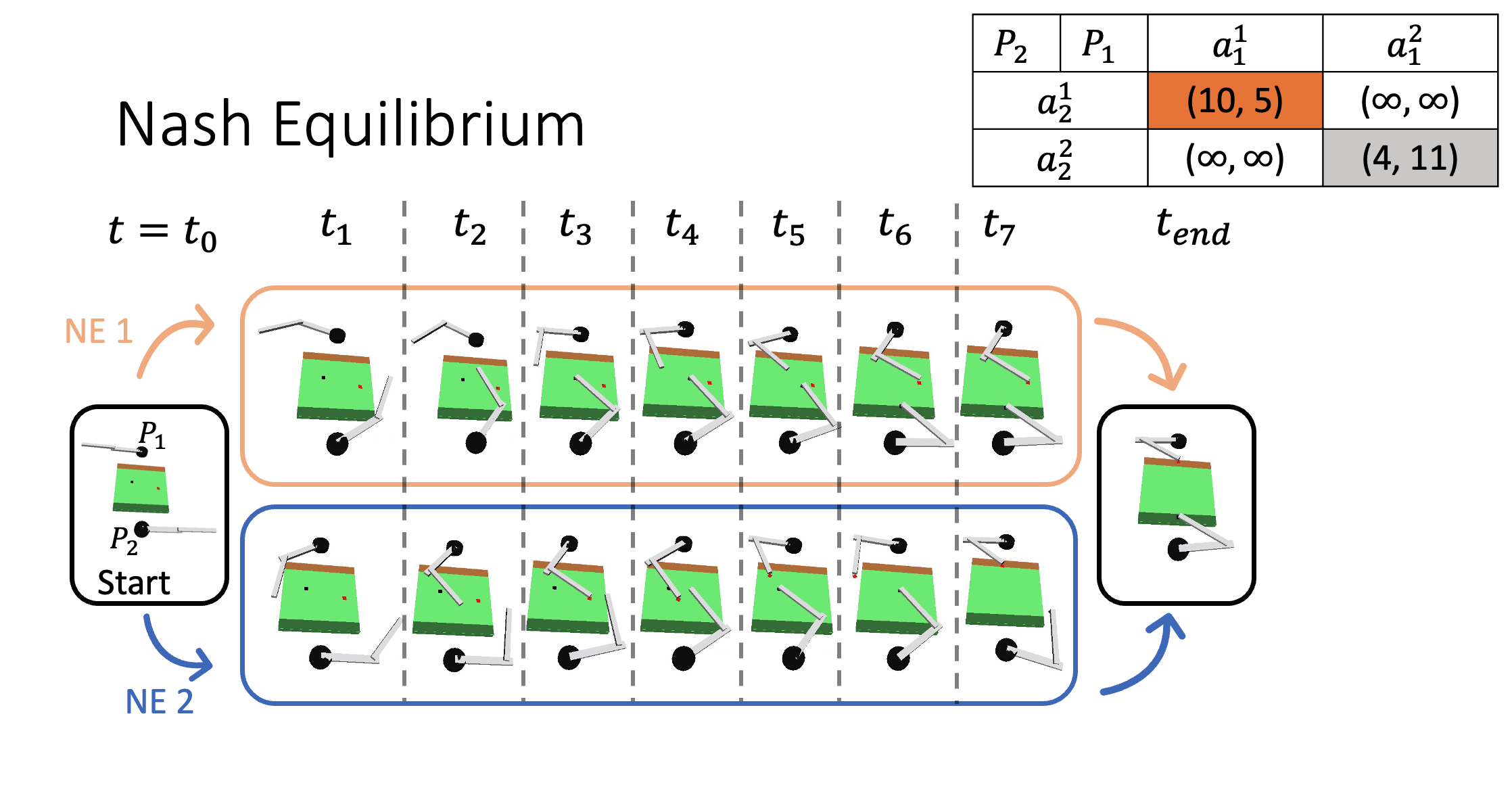Human-Robot Collaboration
A Game-theoretical Approach to Human-Robot Interaction
Humans frequently engage in activities with others in shared spaces, such as driving in traffic, shopping at a grocery store, or cooking in a shared kitchen. These activities are typically characterized by the presence of individual goals rather than being purely competitive or purely cooperative. We refer to such activities, where individually motivated agents perform tasks in shared environments, as parallel play. As robots become increasingly prevalent in our daily lives, it is essential for them to be capable of participating in parallel play activities with humans, seamlessly integrating into these shared spaces and contributing to the dynamic yet individually driven nature of these tasks. In this work, we explore game-theoretical approaches to solve multi-agent interaction problems with a focus on efficiency and safety. We developed Bayes–Nash, a Bayesian inference algorithm for Nash equilibrium selection in human-robot interaction. Our findings indicate that using this Bayesian approach can significantly reduce collisions and improve task efficiency compared to traditional methods.




For more information, please check out our talk at RSS 2020 and our publications (Bansal et al., 2022; Bansal et al., 2021; Bansal et al., 2020)
References
2022
- Bayes–Nash: Bayesian inference for Nash equilibrium selection in human-robot parallel playAutonomous Robots, 2022
2021
- Bayesian Inference for Human-Robot Coordination in Parallel PlayIn Workshop on Cooperative AI at NeurIPS , 2021
2020
- A Bayesian Framework for Nash Equilibrium Inference in Human-Robot Parallel PlayIn Robotics: Science and Systems , 2020